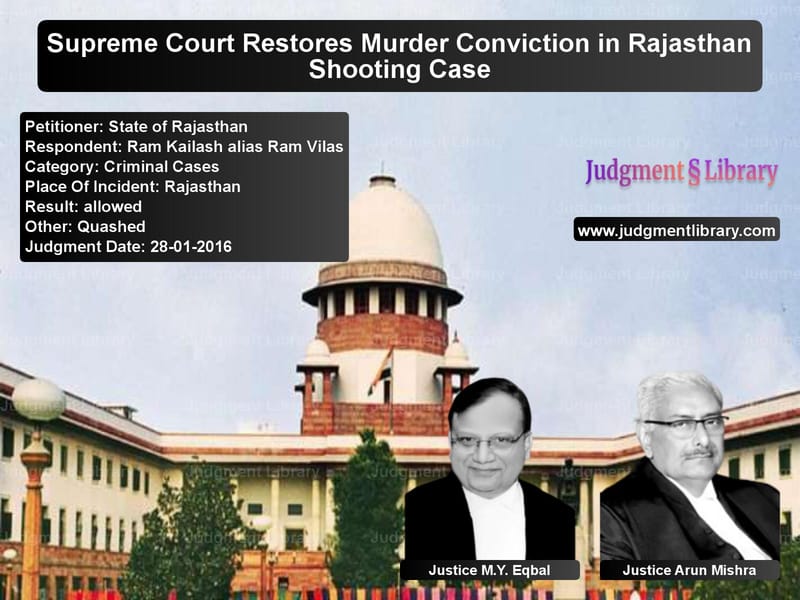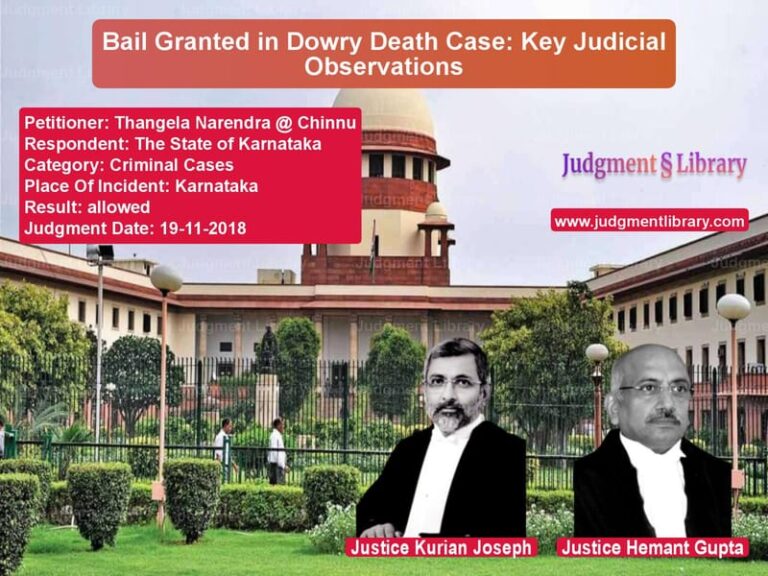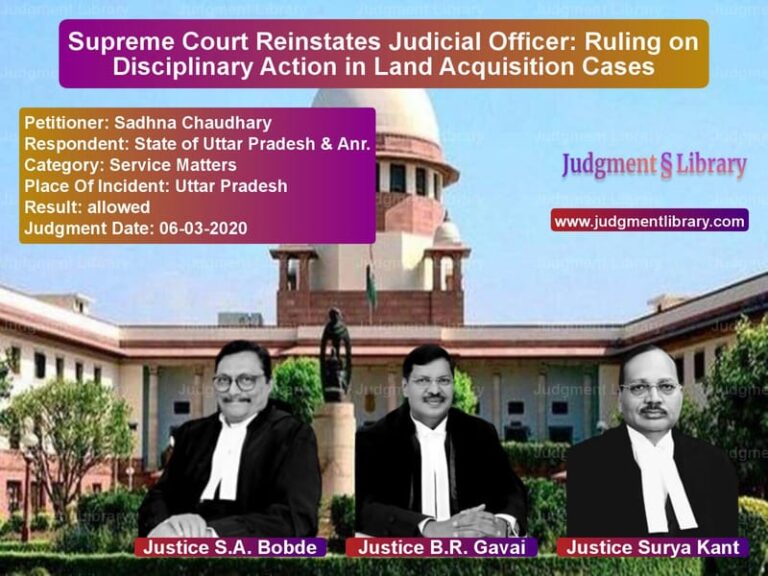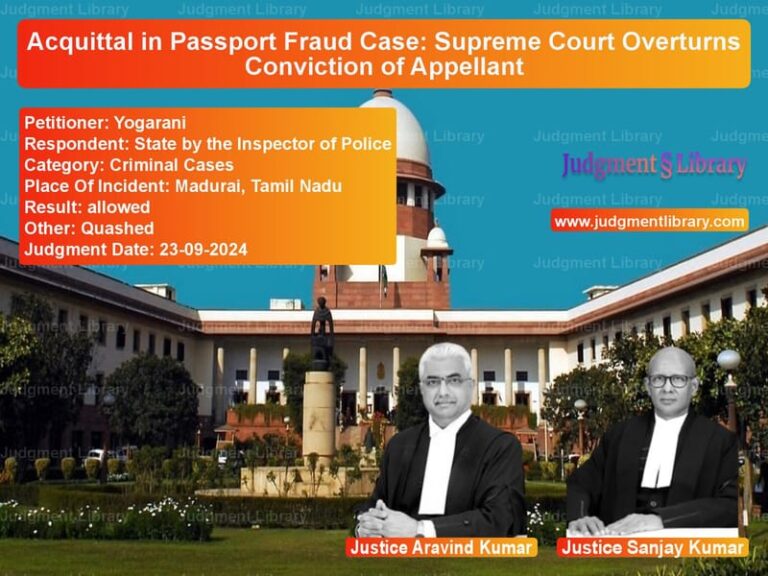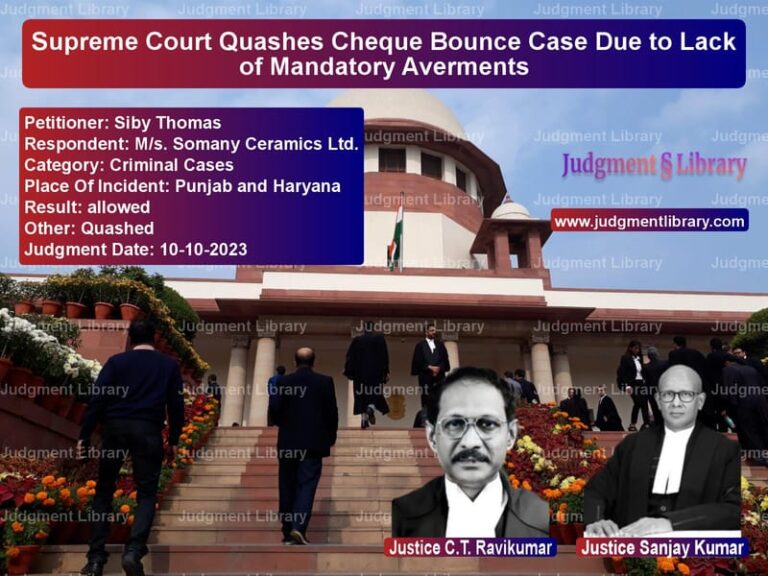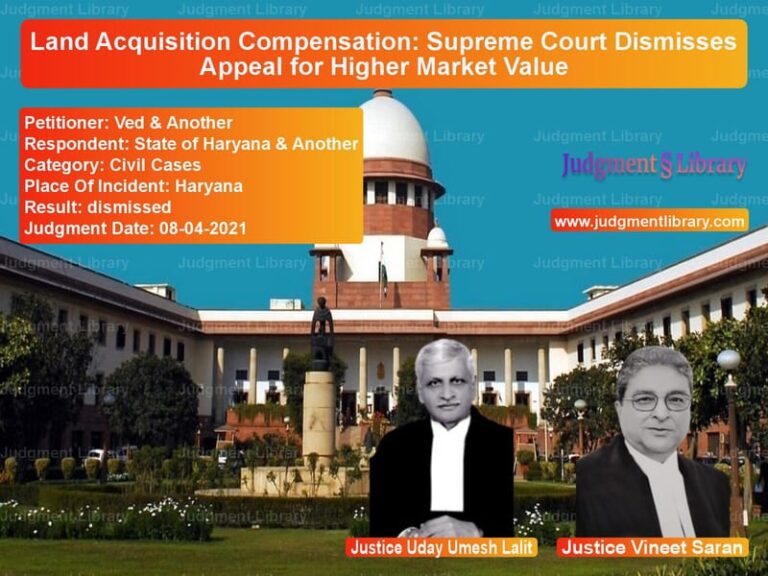Supreme Court Restores Murder Conviction in Rajasthan Shooting Case
The case of State of Rajasthan v. Ram Kailash alias Ram Vilas dealt with a brutal shooting incident that resulted in the death of Mangla Ram. The Supreme Court ruled against the Rajasthan High Court’s decision to reduce the accused’s conviction from murder (Section 302 IPC) to culpable homicide not amounting to murder (Section 304 Part-I IPC), restoring the original conviction and sentence imposed by the trial court.
Background of the Case
On June 16, 2001, Mangla Ram and Ram Chandra were traveling on a motorcycle when the accused, Ram Kailash, along with another individual, chased them on a Suzuki motorcycle. Ram Kailash fired a shot that struck Mangla Ram in the right chest and thigh. Despite receiving medical treatment, Mangla Ram succumbed to his injuries on June 22, 2001.
The police filed a case under Sections 302, 120-B IPC, and the Arms Act against the accused, leading to a trial. The Additional Sessions Judge convicted and sentenced the accused under Section 302 IPC (life imprisonment) and Sections 3/25 and 3/27 of the Arms Act.
Key Arguments by the Petitioner (State of Rajasthan)
- The prosecution argued that the High Court erred in reducing the conviction to Section 304 Part-I IPC.
- The accused had fired the gunshot with the intention to kill, which clearly met the criteria for murder under Section 302 IPC.
- The High Court’s reasoning that the accused did not know whom he was targeting was flawed because intent is directed toward an act, not necessarily a specific individual.
- Section 301 IPC (Doctrine of Transfer of Malice) applied in this case, as the accused intentionally fired at the victims.
Key Arguments by the Respondents (Accused)
- The accused argued that there was no direct intent to kill, as only one shot was fired.
- The injury inflicted was severe but was not an act of deliberate murder, justifying a lesser punishment under Section 304 Part-I IPC.
- The High Court rightly concluded that the act was intended to cause bodily harm, not necessarily to kill.
Supreme Court Judgment
A bench comprising Justices M.Y. Eqbal and Arun Mishra examined the case and ruled that:
- The accused’s act clearly fell under Section 302 IPC, as he fired a gun at the victim with full knowledge that it could cause death.
- Section 301 IPC (Transfer of Malice) applied since the accused knew his act was likely to cause death, even if he did not know precisely who would be hit.
- The High Court’s decision to reduce the conviction was incorrect and failed to apply legal precedents.
- The trial court’s conviction under Section 302 IPC was reinstated, restoring the original sentence of life imprisonment.
Conclusion
This judgment reinforces the principle that firing a gun with lethal intent constitutes murder, regardless of whether the shooter knows the victim personally. The Supreme Court’s decision ensures that serious crimes like this are met with appropriate punishment under the law.
Don’t miss out on the full details! Download the complete judgment in PDF format below and gain valuable insights instantly!
Download Judgment: State of Rajasthan vs Ram Kailash alias Ra Supreme Court of India Judgment Dated 28-01-2016.pdf
Direct Downlaod Judgment: Direct downlaod this Judgment
See all petitions in Murder Cases
See all petitions in Judgment by M.Y. Eqbal
See all petitions in Judgment by Arun Mishra
See all petitions in allowed
See all petitions in Quashed
See all petitions in supreme court of India judgments January 2016
See all petitions in 2016 judgments
See all posts in Criminal Cases Category
See all allowed petitions in Criminal Cases Category
See all Dismissed petitions in Criminal Cases Category
See all partially allowed petitions in Criminal Cases Category

